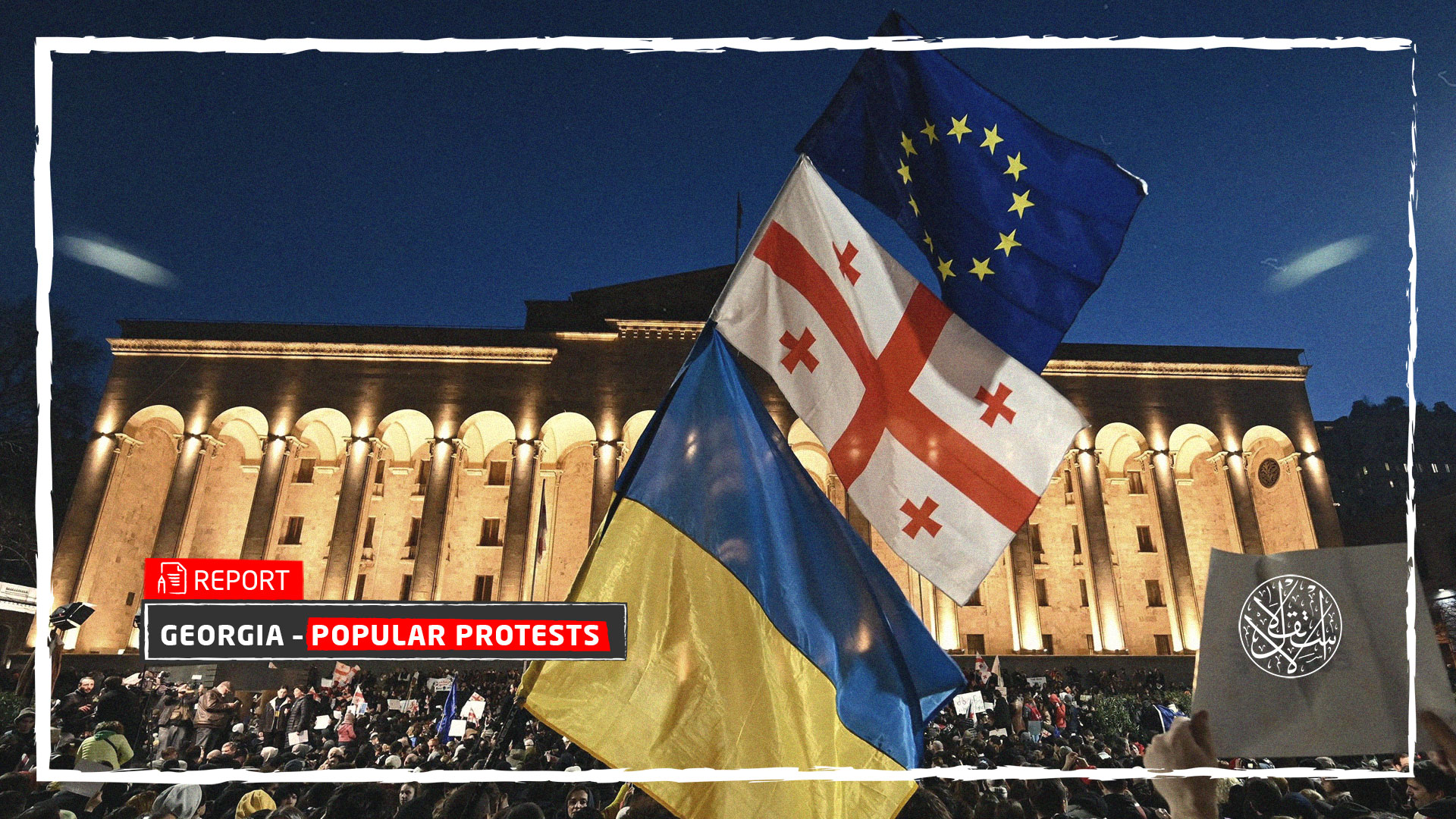How Did the Russian–Western Dispute Ignite Protests in Georgia?

Despite the reluctance of the Georgian government to enforce the “foreign agents” law, protests have continued in Tbilisi since the beginning of March.
The demonstrators, mostly composed of students, are demanding the resignation of parliament members who supported the bill and hold positions at universities.
They are also calling for releasing all those arrested in connection with the protests and canceling other proposed laws, particularly the mandatory conscription law.
The ongoing protests have resulted in a polarization between Russia and the West, with each side taking a different stance on the situation.
While the government has yet to take action on the demands of the demonstrators, their persistence has shown the strength of their convictions and the depth of their frustration.
The protests represent a challenge to the Georgian government as it navigates the delicate balance between maintaining relations with Russia and seeking closer ties with the West.
It remains to be seen how the government will respond to the demands of the demonstrators and whether this will lead to further unrest in the country.
No to Russian Law
Protesters in Georgia have been vocal in their opposition to a new bill proposed by the ruling party, which they liken to a Russian law designed to stifle dissent and classify foreign-funded institutions as “foreign agents.”
The bill has been interpreted as an attempt to limit press freedoms and censor non-governmental organizations (NGOs), leading to concerns about the future of civil society in the country.
Georgia’s president, Salome Zourabichvili, has voiced her support for the protesters, emphasizing the importance of a free and independent Georgia with close ties to Europe.
Her recorded message to protesters in New York underscores the gravity of the situation, stating that the bill “can only have come with dictates from Russia.”
The Georgian Policy Institute, along with 286 human rights and civil society organizations, have also spoken out against the proposed law.
In a joint statement, they declare that the bill represents an attack on the people of Georgia and threatens to leave vulnerable groups without protection or assistance. The bill’s repeal has not halted the ongoing protests, as demonstrators remain committed to safeguarding the future of civil society in Georgia.
The protests highlight the delicate balance that Georgia must navigate as it seeks closer ties with the West while also maintaining its relationship with Russia.
The situation also reflects the broader tension between democracy and authoritarianism in the region, as many citizens push back against attempts to limit their freedoms and stifle dissent. The ultimate outcome of the protests remains uncertain, but they serve as a reminder of the importance of protecting civil society and preserving democratic values.
Russia has condemned the protests, accusing foreign actors of interfering in Georgian affairs and attempting to repeat the events that led to the conflict in Ukraine.
Meanwhile, Western leaders have expressed solidarity with the protesters and voiced their support for a free and democratic Georgia.
The situation in Georgia is complicated by the fact that Russia has already occupied 20% of the country’s territory since 2008.
Many protesters have expressed concern that the proposed law is part of a broader attempt by the Georgian Dream party, founded by controversial billionaire Bidzina Ivanishvili, to impose a pro-Russian agenda on the country.
Ivanishvili has close ties to the Kremlin and has been accused of prioritizing Russian interests over those of Georgia.
Moldova
The ongoing struggle between Russia and the West in the former Soviet Union has already had severe consequences, as evidenced by the conflict in Ukraine.
As the Ukraine conflict enters its first year, the former Soviet periphery is experiencing escalating tensions that extend beyond Georgia.
Moldova is also facing its own set of challenges, including anti-government protests and the arrest of those deemed “pro-Russian rioters” by the authorities.
Furthermore, Moldova is increasingly alarmed by Russian forces launching attacks on Ukrainian territory from the breakaway Transnistria region, which Moscow sees as a Russian military presence in Ukraine’s southwest, and is concerned that Kyiv will target its stationed soldiers
The West is taking advantage of the situation and intensifying its activity in Central Asian countries in a bid to distance them from Russia’s sphere of influence.
While some experts view these developments as signs of Moscow’s declining influence in its former Soviet territories, they are still hotly debated, with others suggesting that the war has actually strengthened Russia’s ties with these nations.

Continuous Battle
The recent unrest and anxiety felt in the countries neighboring the former Soviet Union are closely tied to the ongoing conflict in Ukraine.
The current protests in Tbilisi and the resulting polarization between Russia and the West are reminiscent of the 2008 five-day war in the country.
Experts suggest that the ongoing Ukrainian conflict is an extended version of the 2008 war, as both conflicts were driven by the deployment of Russian forces to prevent the two countries from joining NATO.
This has fueled concerns among Central Asian countries, especially Kazakhstan, about possible separatist movements.
In 2015, Putin dismissed worries about a similar Ukrainian scenario in Kazakhstan, citing that the country lacked its own statehood.
The exchange of accusations between Russia and the West, labeling each other as agents of political interference, is an expression of the ongoing struggle for power between the two dominant forces, extending beyond Ukraine’s borders to other former Soviet countries.
The ruling party in Georgia is now being accused of attempting to advance Russian interests. However, their predecessor, the United National Movement, which was in Washington’s sphere of influence, also fell short in ensuring democratic freedoms and human rights.



